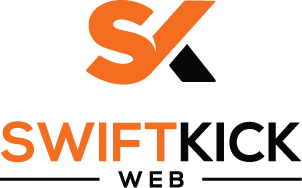Speed Matters: How to Diagnose and Fix Slow Websites
Is your website feeling sluggish? In today's fast-paced digital world, speed is everything. A slow website can turn potential clients away faster than you can say "buffering." Let's break down why speed matters and how to get your site up to speed.
Why Website Speed is Important
First Impressions Count: Your website’s load time is often the first impression customers have of your business. Fast-loading pages build trust and keep users engaged.
SEO Rankings: Search engines like Google prioritize faster websites. If you want to climb those search rankings, improving your site speed is a must.
User Experience: A faster website provides a better user experience, reducing bounce rates and increasing the chances of conversion.
Diagnosing the Problem
Identifying the issues slowing down your website is the first step. Here are some tools and methods:
Google PageSpeed Insights: This tool gives you a detailed report on what's dragging your site down and offers suggestions for improvement.
GTmetrix: Provides insights into your site’s performance and areas needing attention.
Pingdom: Tests your site's speed from different locations around the world.
Key Culprits and Solutions
Large Images: High-resolution images can significantly slow down your site. Compress images without losing quality to speed things up.
Unoptimized Code: Bulky and inefficient code can be a major drag. Streamline your code by removing unnecessary elements and optimizing scripts.
Slow Hosting: Sometimes, the issue is with your hosting provider. Upgrading to a faster, more reliable hosting service can make a big difference.
Browser Caching: Enable browser caching to store frequently accessed resources on users’ devices, reducing load times for repeat visitors.
Steps to Turbocharge Your Website
Optimize Images: Use tools like TinyPNG or ImageOptim to compress images without losing quality.
Minify CSS, HTML, and JavaScript: Remove unnecessary characters from your code to reduce file sizes.
Leverage Browser Caching: Configure your server to cache static resources.
Upgrade Hosting: Consider switching to a high-performance hosting provider.
Content Delivery Network (CDN): Use a CDN to distribute your content across multiple servers worldwide, reducing load times.
Let’s Speed Things Up!
A fast website is crucial for keeping clients engaged and boosting your online presence. If you're unsure where to start or need expert help, we’re here for you. Reach out for a free consultation, and let's make your website lightning fast.
Looking forward to helping you succeed!
